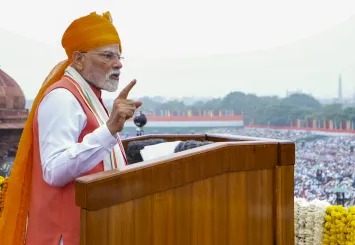
Follow WOWNEWS 24x7 on:

Sri Lanka’s Energy Ministry has announced plans to invite fresh international tenders for land previously earmarked for a renewable energy project by India’s Adani Group. The decision marks a significant pivot in the country’s energy infrastructure strategy, reflecting a push for transparency, competitive pricing, and diversified foreign participation.
The move comes amid ongoing scrutiny of the original agreement, which was signed under the previous administration and has since faced legal, environmental, and political challenges.
Key Highlights From the Announcement
- The land in question was originally allocated for a $442 million wind power project by Adani Green Energy in Mannar and Pooneryn
- Sri Lanka’s Energy Minister confirmed that new tenders will be floated to ensure a fair and competitive process
- The government aims to attract global players to bid for the project, potentially reshaping the regional energy landscape
- The original power purchase agreement with Adani was revoked in January 2025, though the project itself was not formally cancelled
- Sri Lanka is seeking a lower tariff than the previously agreed 8.26 cents per kWh, targeting rates below six cents
Background and Political Context
The Adani Group’s entry into Sri Lanka’s energy sector was facilitated in early 2023 under the administration of former President Gotabaya Rajapaksa. The project was part of a broader post-crisis investment strategy following Sri Lanka’s economic collapse in 2022. However, the deal quickly drew criticism over its lack of competitive bidding and alleged political favoritism.
Current President Anura Kumara Dissanayake had pledged during his campaign to review and potentially cancel controversial foreign contracts. His administration has since emphasized the need for transparent procurement and cost-effective energy solutions.
Legal and Environmental Challenges
- The original project faced delays due to environmental concerns, including potential impacts on bird migration and coastal ecosystems
- A legal challenge was filed in Sri Lanka’s Supreme Court, prompting the government to reconsider the project’s approval
- The Ceylon Electricity Board (CEB) has been tasked with conducting detailed feasibility and environmental studies before issuing new bids
The government’s stance reflects a broader commitment to sustainable development and regulatory due diligence.
Implications for Adani Group
While the Adani Group has denied any wrongdoing and maintains that its Sri Lankan projects are still active, the revocation of the power purchase agreement and the call for fresh tenders signal a setback. The group’s other ventures in Sri Lanka, including the Colombo West International Terminal, remain under review by international lenders and regulatory bodies.
The Energy Ministry’s decision may also influence future foreign investment dynamics, with increased emphasis on competitive bidding and public accountability.
Future of Sri Lanka’s Renewable Energy Plans
Sri Lanka remains committed to expanding its renewable energy capacity:
- The CEB plans to invite bids for two additional offshore wind farms in Mannar and Puttalam, each with 500 MW capacity
- Feasibility studies are expected to conclude by 2027, with construction likely to begin in 2028
- The Mannar site is considered to have superior wind energy potential, though offshore development costs are higher
The government’s revised approach aims to balance energy security, environmental sustainability, and fiscal prudence.
Conclusion: A Strategic Reset in Sri Lanka’s Energy Policy
Sri Lanka’s decision to reopen tenders for land previously allocated to Adani Green Energy marks a strategic reset in its energy policy. By prioritizing transparency and competitive pricing, the government seeks to attract diverse global participation while ensuring long-term sustainability. As the country navigates its post-crisis recovery, this move could redefine its approach to foreign investment and infrastructure development.
Sources: The Hindu, Tamil Guardian, Devdiscourse, The Hindu Business Line






